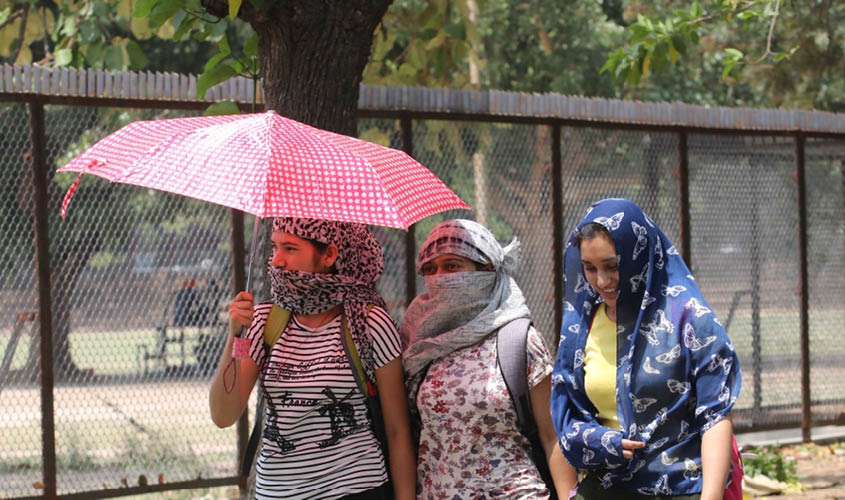At least 100 people have died this summer in one of the country’s longest heat waves in recent history.
New Delhi: India is set to get the world’s first cooling commission aimed at preventing fatalities caused by extreme heat stress. The Union Ministry of Environment, Forest and Climate Change (MoEFCC) headed by Prakash Javadekar has set the ball rolling to implement the draft National Cooling Action Plan (NCAP) which was tabled in September last year.
Interestingly, the NCAP is said to be a pet project of Prime Minister Narendra Modi as he introduced a similar CAP in Gujarat in 2010 when he was Chief Minister of the state. After coming to the Centre, Modi once again pitched for a pan-India CAP and that resulted in the draft NCAP.
However, the Modi-led Centre failed to implement the draft NCAP during its last tenure, and the government is mulling to implement it soon.
According to sources, Javadekar has asked officials of the MoEFCC to consider all suggestions that have come on the draft NCAP and submit them in a time-bound manner so that the draft can be submitted in the ongoing session of the Parliament.
It is to be noted that during its last tenure, the NDA-led Central government had set up a committee to draft a CAP for the country’s cooling plan. The committee submitted the draft NCAP in September 2017 to the then minister of Environment, Forest and Climate Change Harsh Vardhan and the draft was further published for experts’ suggestions.
Till now, the draft has received various suggestions from domain experts and the MoEFCC under Prakash Javadekar is looking into the suggestions for revision of the draft NCAP. The draft NCAP envisages a multi-stakeholder effort, bringing together several key stakeholders such as experts on the cooling industry, energy efficiency, and alternative refrigerants. The idea of having a NCAP is linked to the Montreal Protocol which prescribes both mitigating climate change and supporting countries’ sustainable development goals.
A source close to the MoEFCC told The Sunday Guardian: “Prakash Javadekar himself is looking into the implementation of NCAP and officials of the ministry have been clearly told to assess all the suggestions that the NCAP portal has received. The minister has asked to come up with a revised proposal, including all viable and good suggestions in the NCAP.”
“So far, officials of the MoEFCC have found that the suggestions to form a cooling commission, which will determine the functioning of the NCAP, are good; thus, the officials are mulling to include these suggestions,” the same source cited above said.
“The MoEFCC has also received several criticisms on the clauses of the NCAP draft from environmentalists and officials are studying them to make a full-proof NCAP. The country is facing high risk temperature rise where deaths due to rising temperature have become normal news. Therefore, the task of the NCAP is to ensure access to cooling for citizens without warming the planet. The country is among the most Cooling Degree Days (CDD) demanding region in the world and the daily CDD demand is more than 3,000 per year,” the source said.
The CDD is a measurement unit designed to quantify the demand for energy needed to cool a building. It is the number of degrees that a day’s average temperature is above 65° Fahrenheit (18° Celsius), which is the temperature above which buildings need to be cooled. Summers in the northern and western parts of the country are already extremely hot, with average temperatures ranging from 32°C to 45°C.
“The NCAP draft seeks to reduce cooling demand across sectors by 20% to 25% by 2037-38, reduce refrigerant demand by 25% to 30% by 2037-38, and to reduce cooling energy requirements by 25% to 40% by 2037-38. It also envisages recognising cooling-related other areas,” the draft NCAP reads.
Reportedly, at least 100 people have died this summer in one of the country’s longest heat waves in recent history. According to the country’s meteorological department, this year the heat has scorched the country for more than 30 consecutive days, primarily in northern and central India and this year, the temperatures in Delhi reached 48 degrees Celsius on 10 June—the highest ever recorded in history.

